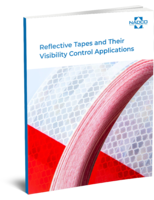RNAi Screening System uses viral delivery method.
Press Release Summary:
Requiring minimal reagent preparation, shRNA-based LentiExpress accelerates high-throughput RNAi screening. Optimization Plate lets researcher add desired number of cells to each well, continue with optional selection/addition of small molecules, and proceed directly to desired assay for gene silencing or loss-of-function. MISSION LentiExpress Human Kinase shRNA set consists of 3,109 pre-arrayed lentiviral clones harboring shRNA sequences for 673 human kinase genes.
Original Press Release:
Sigma-Aldrich Announces LentiExpress(TM) Technology for Faster and Easier High-Throughput RNAi Screening
Novel viral delivery method saves significant time and costs with a ready-to-go process for whole-kinome screens.
ST. LOUIS, Aug. 28 -- Sigma-Aldrich (NASDAQ:SIAL) is pleased to introduce the LentiExpress shRNA-based system (http://www.sigma.com/lentiexpress) for rapid high-throughput RNAi screening with minimal reagent preparation or optimization required. The addition of this technology to the MISSION(R) shRNA platform pairs the benefits of lentiviral-based shRNA with a simple streamlined protocol.
The bottleneck for researchers is the time and expense required to generate viral particles and devise a robust screening strategy. With the MISSION LentiExpress technology, they can eliminate reagent preparation with a sophisticated yet simple method to perform complex screens. An Optimization Plate enables researchers to quickly optimize the system for their particular cell line. This optimization process is uniquely simple compared to cumbersome transfection optimization methods that exist for siRNA-based screens. A researcher simply adds the desired number of cells to each well, continues with optional selection and/or addition of small molecules (for example, pharmaceutical compounds), and then proceeds directly to the desired assay for gene silencing or loss-of-function.
The LentiExpress format with the Human Kinase shRNA collection of The RNAi Consortium (TRC) enables rapid human kinome RNAi screening. The MISSION LentiExpress Human Kinase shRNA set consists of 3,109 individual pre-arrayed lentiviral clones harboring shRNA sequences that target 673 human kinase genes for gene silencing.
"Because we created the product to be ready-to-go single-use assays, researchers now have access to a fast and affordable means to utilize RNAi in whole-kinome screens. Lentiviral-based shRNA is also known for the benefit of being able to deliver RNAi effector molecules to a wide variety of cells including primary and non-transfectable cells lines," said Dr. Edward Weinstein, Manager of Functional Genomics Operations at Sigma-Aldrich. "Another benefit is stable long-term knockdown compared to transient transfection based siRNA options."
"Sigma-Aldrich researchers have performed proof-of-principle LentiExpress screens examining which genes might play a role in the modulation of a well-known cancer chemotherapy drug," said Dr. David Smoller, President of the Sigma-Aldrich Research Biotech business unit. "The screen resulted in hits already validated by the literature as well as additional hits that could be further investigated as prognostic markers for susceptibility to treatment. Both internal and external validations of the methodology have proven the utility of this exciting technology."
The LentiExpress technology complements the already robust MISSION shRNA product line which includes libraries, gene family sets, and gene target sets for The RNAi Consortium lentiviral-based shRNA collection targeting the human and mouse genomes. The product portfolio includes a viral packaging system, a variety of controls, as well as the unique ability to offer any or all of the collection in a choice of glycerol stock, purified DNA or viral particle format. Sigma-Aldrich's complete RNAi platform also includes the MISSION siRNA libraries, mRNA detection reagents, antibodies and AQUA peptides for protein level detection as well as an entire workflow of supporting reagents (cell culture, cell biology compounds and assays, transfection reagents, and much more). For more information, visit http://www.sigma.com/lentiexpress.
About Sigma-Aldrich: Sigma-Aldrich is a leading Life Science and High Technology company. Its biochemical and organic chemical products and kits are used in scientific and genomic research, biotechnology, pharmaceutical development, the diagnosis of disease and as key components in pharmaceutical and other high technology manufacturing. Sigma-Aldrich has customers in Life Science companies, university and government institutions, hospitals, and in industry. Over one million scientists and technologists use its products. Sigma-Aldrich operates in 36 countries and has 7,700 employees providing excellent service worldwide. Sigma-Aldrich is committed to Accelerating Customer Success through Leadership in Life Science, High Technology and Service. For more information about Sigma-Aldrich, please visit its award-winning Web site at http://www.sigma-aldrich.com/.
About TRC: TRC is comprised of principal investigators from world-class academic research institutions (Massachusetts Institute of Technology, Harvard Medical School, the Broad Institute, Whitehead Institute for Biomedical Research, Dana-Farber Cancer Institute, Massachusetts General Hospital, Washington University, Columbia University, and Academia Sinica) as well as corporate sponsoring institutions (Sigma-Aldrich, Novartis, Eli Lilly, and Bristol-Myers Squibb). As a scientific collaborator and distribution partner through agreement with MIT, Sigma-Aldrich is working with TRC to provide the scientific community with RNAi tools for functional genomics research specifically for gene function discovery and the study of disease. The MISSION TRC shRNA clone libraries comprise a comprehensive collection of over 150,000 pre-cloned lentiviral-based shRNA vector constructs targeting more than 15,000 human genes (MISSION TRC-Hs1.0) and 15,000 mouse genes (MISSION TRC-Mm1.0). Design and development of the TRC libraries is being led by the Broad Institute of the Massachusetts Institute of Technology (MIT) and Harvard. For more information about MISSION shRNA clone collections, please visit us online at http://www.sigma.com/shrna.
CONTACT: Sean Battles of Sigma-Aldrich, +1-314-286-7616, sean.battles@sial.com




